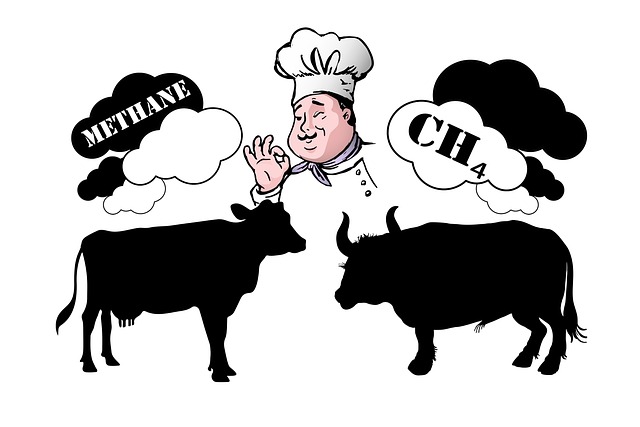In Oregon, the Department of Human Services (DHS) handles child protective services cases, balancing child safety with parental rights. Parents facing DHS investigations have legal protections, including representation and information access, outlined in Clackamas County's child advocacy resources. The interplay between Oregon family law and the Child Protective Services Act guides these cases, requiring proactive engagement from parents and legal counsel to navigate complex procedures and safeguard familial bonds. Specialized attorneys specializing in child welfare legal services are crucial for protecting parental rights during these proceedings.
In Oregon, navigating child welfare allegations can be complex and emotionally challenging. This comprehensive guide aims to demystify the process for parents facing such charges. We explore crucial aspects, from understanding child welfare legal services and parental rights protection under Oregon law, to DHS child welfare cases and Clackamas County child advocacy resources. Learn how to build an effective defense strategy by unraveling the Oregon Family Law and Child Protective Services Act, ensuring your rights are protected throughout the process.
- Understanding Child Welfare Allegations in Oregon: A Legal Perspective
- Parental Rights and Protections: What Every Parent Should Know
- Navigating DHS Child Welfare Cases: A Comprehensive Guide
- Clackamas County Child Advocacy: Supporting Families Through Difficulties
- Unraveling the Oregon Family Law and Child Protective Services Act
- Building a Defense Strategy: Effective Approaches for Challenges
Understanding Child Welfare Allegations in Oregon: A Legal Perspective

In Oregon, child welfare allegations are taken seriously by the Department of Human Services (DHS), which handles child protective services cases across the state. These allegations can range from neglect and abuse to more specific issues like medical negligence or educational neglect. Understanding these allegations from a legal perspective is crucial for parents facing such charges. Parental rights protection is a significant concern, as the state’s child welfare legal services aim to balance the best interests of the child with preserving familial bonds.
The Clackamas County child advocacy office, among others, plays a vital role in these cases, offering support and resources for families involved in DHS investigations. Oregon’s family law framework provides guidelines for handling such situations, ensuring fair processes for both parents and children. Navigating this complex legal landscape requires expertise, especially when facing potential removal or placement of a child outside the home.
Parental Rights and Protections: What Every Parent Should Know

In Oregon, parents have fundamental rights and protections when facing child welfare legal services or DHS child welfare cases. Understanding these rights is crucial for navigating Clackamas County child advocacy and ensuring a fair process during Oregon family law proceedings. Every parent should be aware that they have the right to legal representation during any investigation or court involvement related to their child’s safety and well-being. This means seeking counsel from an attorney specializing in child protective services law, who can guide parents through complex legal processes and advocate for their rights.
Knowing their protections enables parents to actively participate in decision-making regarding their children. This includes the right to remain silent, challenge evidence, and cross-examine witnesses during any hearing. Parents are also entitled to access and review all documentation related to their case, ensuring transparency and allowing them to build a strong defense. These rights are essential for protecting parental relationships with their children and safeguarding family interests in DHS child welfare cases.
Navigating DHS Child Welfare Cases: A Comprehensive Guide

Navigating DHS Child Welfare Cases involves a complex interplay of legal procedures and parental rights protection. In Oregon, particularly in Clackamas County, families facing such allegations can find support through comprehensive child welfare legal services. These services are designed to educate parents about their rights under the state’s family law and ensure they receive adequate representation during DHS child welfare cases. Understanding the process is crucial; knowledge empowers parents to actively participate in proceedings that could significantly impact their future with their children.
The Oregon child protective services law outlines clear guidelines for investigating allegations, removing children if deemed necessary, and ultimately returning them to their families when safe. This intricate system demands proactive engagement from parents, who should remain informed about the case’s progress and not hesitate to seek legal counsel. Clackamas County child advocacy centers play a vital role in supporting families by providing resources and advocating for their rights, ensuring every step of the process is navigated with fairness and transparency.
Clackamas County Child Advocacy: Supporting Families Through Difficulties

In Clackamas County, child advocacy plays a pivotal role in supporting families facing child welfare allegations. The county’s dedicated Child Advocacy Center (CAC) serves as a safe haven for both children and parents, providing comprehensive services that encompass legal support, counseling, and education. This holistic approach ensures that parental rights are protected while navigating the complexities of DHS child welfare cases.
The CAC offers specialized legal services tailored to Oregon family law, helping parents understand their rights and obligations during investigations and court proceedings. By fostering open communication and collaboration among various agencies involved in DHS child welfare cases, the center facilitates a more efficient and supportive process for all parties concerned. Through its robust programming, Clackamas County Child Advocacy aims to not only protect parental rights but also to help families heal and thrive amidst their difficulties.
Unraveling the Oregon Family Law and Child Protective Services Act

In Oregon, the intricate relationship between Oregon Family Law and the Child Protective Services Act forms the framework for handling DHS child welfare cases. This legislation aims to balance the protection of vulnerable children with the preservation of parental rights. The Child Protective Services law grants authorities like the Department of Human Services (DHS) the power to intervene when a child’s safety and well-being are at risk. However, it also establishes guidelines for due process, ensuring parents have legal representation and access to information during these cases.
Clackamas County, known for its robust child advocacy programs, operates within this legal framework. Parents facing child welfare allegations in Clackamas County or across Oregon must understand their rights under parental rights protection. Engaging with experienced legal counsel specializing in child welfare legal services is crucial to navigating these complex cases and ensuring a fair outcome.
Building a Defense Strategy: Effective Approaches for Challenges

When facing child welfare allegations in Oregon, building a robust defense strategy is paramount to protecting parental rights. Engaging experienced legal counsel specializing in DHS child welfare cases and Clackamas County child advocacy is essential. They can navigate the complex Oregon family law and child protective services law landscape. A comprehensive strategy may involve gathering compelling evidence to refute claims, constructing a narrative that highlights the positive parenting practices, and presenting strong character witnesses who can attest to the parent’s commitment and capabilities.
Additionally, focusing on effective communication with all involved parties, including Child Welfare Services and the court, is crucial. Proactive engagement in mediation or alternative dispute resolution methods could be beneficial approaches. By employing these strategies, parents can challenge allegations head-on while safeguarding their parental rights and the best interests of their children.






